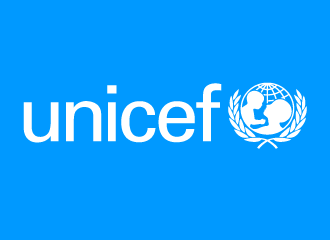Headline
UNICEF pledges $270m for poverty alleviation, humanitarian response in Nigeria- Official

The United Nations International Children’s Emergency Fund (UNICEF) has pledged to commit 270 million dollars to strengthen and support Nigeria’s humanitarian response and poverty alleviation efforts.
UNICEF Country Representative, Cristian Munduate, made this known when she met with the Minister of Humanitarian Affairs and Poverty Alleviation, Dr Betta Edu, in Abuja.
According to a statement issued to newsmen by the Deputy Director, Information of the Ministry, Mrs Rhoda Iliya on Tuesday in Abuja said, “UNICEF also assured the minister of their commitment to provide technical support towards building capacity of the ministry’s staff to achieve its mandate,”
”We will also support the development of a Humanitarian Response Protocol for Nigeria to guide all Humanitarian Actors as this will facilitate effective coordination.
”We will support the establishment of a National Humanitarian Situation Room or Humanitarian Emergency Operation Centre (H-EOC) to monitor, mitigate and prevent Humanitarian Emergencies and build resilience in the system” the statement added.
The statement said the minister in her response informed the UNICEF delegation of the federal government’s determination to lift millions of Nigerians out of poverty.
It quoted the minister as saying that ”The Federal Government of President Bola Tinubu, is committed to lifting 133 Million poor Nigerians out of poverty in a phased approach.
”Especially, the 71 Million extremely poor Nigerians who leave under one dollar ninety-five cents a day.
The statement said Edu also charged the UNICEF to as a matter of urgency draw up their plan of action towards supporting the federal government efforts on poverty alleviation.
”Time is of essence and we need to run at the speed of light to roll out social programs that will bring relieve to the burdens of the poor.
”Nigerians are eagerly waiting for full implementation of the renewed hope agenda and the time for intense action is now” the statement indicated,” she said.
The statement said the minister assured UNICEF and other development partners of government’s determination to continue the engagement to achieve the target of lifting millions of Nigerians out of poverty.
“The minister maintained that, transparency and accountability will remain a top priority under her Stewardship in the ministry,” the statement added.
Headline
Fagbemi warns against obstructing EFCC from performing its lawful duty

The Minister of Justice, Lateef Fagbemi, SAN has warned against obstructing the Economic and Financial Crimes Commission (EFCC) from carrying out its lawful duty .
Fagbemi’s warning is contained in a statement in Abuja.
“This is a matter of very grave concern, it is now beyond doubt that the EFCC is given power by the law to invite any person of interest to interact with them in the course of their investigations into any matter, regardless of status.
“Therefore, the least that we can all do when invited, is not to put any obstruction in the way of EFCC, but to honourably answer their invitation.
“A situation where public officials who are themselves subject of protection by law enforcement agents will set up a stratagem of obstruction to the civil and commendable efforts of the EFCC to perform its duty is to say the least, insufferably disquieting’’.
He added that running away from the law will not resolve issues at stake but only exacerbate them.
“Nigeria has a vibrant judicial system that is capable of protecting everyone who follows the rule of law in seeking protection.
“I therefore encourage anyone who has been invited by the EFCC or any other agency to immediately toe the path of decency and civility by honouring such invitation instead of embarking on a temporising self-help and escapism.
“This can only put our country in bad light before the rest of the world’’.
He said institutions of state should be allowed to function effectively and efficiently.
“I stand for the rule of law and will promptly call EFCC, and indeed any other agency to order when there is an indication of any transgressions of the fundamental rights of any Nigerian by any of the agencies’’.
NAN reports that the EFCC had on Wednesday warned members of the public that it was a criminal offence to obstruct officers of the Commission from carrying out their lawful duties.
Section 38(2)(a(b) of the EFCC Establishment Act makes it an offence to prevent officers of the Commission from carrying out their lawful duties. Culprits risk a jail term of not less than five years.
The warning , the EFCC said, became necessary against the background of the increasing tendency by persons and groups under investigation by the Commission to take the laws into their hands by recruiting thugs to obstruct lawful operations of the EFCC.
On several occasions, the anti graft agency said, operatives of the Commission have had to exercise utmost restraint in the face of such provocation to avoid a breakdown of law and order.
Headline
Unknown Gunmen Abduct Channelstv Reporter In Port-harcourt

Some unknown gunmen have kidnapped Joshua Rogers, the ChannelsTV reporter in Port-Harcourt, the Rivers State capital.
Politics Nigeria learnt that Rogers was picked up close to his residence at Rumuosi in Port Harcourt and to an unknown destination by the gunmen around 9pm on Thursday, April 11.
The reporter was driving his official ChannelsTV branded car when the hoodlums accosted, pointed a gun at him and took him away in the same vehicle.
Rogers was said to be returning from his official assignment in Government House after a trip to Andoni for a government event when the incident happened.
Already, the gunmen were said to have contacted his wife and demanded a N30million ransom for bis release.
His cameraman confirmed the incident and appealed to his abductors to set him free unconditionally.












